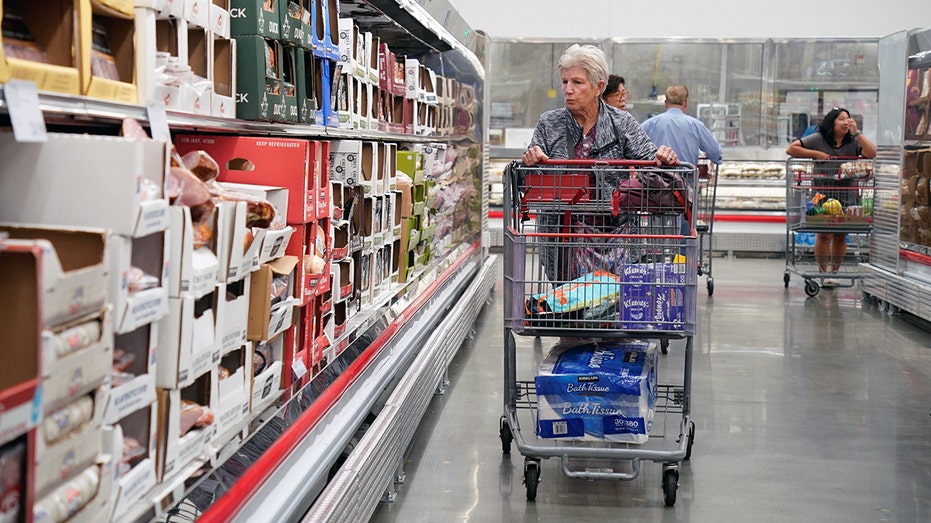The chronic inflation crisis is hindering millions of Americans’ ability to prepare for their financial future, according to a new study published by Allianz Life.
Findings from the Allianz Life Insurance Company of North America show that U.S. households are draining their retirement savings, taking on debt and reducing the amount that they are setting aside for the future to maintain their present-day finances.
Nearly 7 in 10 respondents said they have not contributed as much to their savings due to higher prices for everyday goods, while 51% of Americans said they are racking up more credit card debt in order to pay for necessities.
WAGES IN THE US ARE FALLING AT A ‘STRIKING’ PACE, INDEED SAYS
On top of that, nearly 42% of households reported dipping into their retirement savings because of inflation – a “worrying” sign for long-term financial stability, according to the report.
“The rising cost of living is stretching American budgets,” said Kelly LaVigne, vice president of consumer insights at Allianz Life. “Just because inflation has slowed doesn’t mean prices have gone down. In the short term, it may be wise to delay any major purchases to keep saving toward your future and avoid taking on new debt.”
The study comes as Americans continue to confront stubbornly high inflation that has rapidly eroded their purchasing power.
401(K) ‘HARDSHIP’ WITHDRAWALS SURGE TO ANOTHER RECORD AS HIGH INFLATION STINGS
The Labor Department last month reported that the consumer price index, a broad measure of the price of everyday goods including gasoline, groceries and rent, rose 0.4% in February from the previous month. Prices climbed 3.2% from the same time last year.
Both of those figures came in higher than the 0.3% monthly increase and 3.1% headline gain recorded in January, underscoring the difficulty of taming price pressures within the economy.

High inflation has created severe financial pressures for most U.S. households, which are forced to pay more for everyday necessities like food and rent. The burden is disproportionately borne by low-income Americans, whose already-stretched paychecks are heavily affected by price fluctuations.
As they spend more on everyday goods, Americans are burning through their savings and are increasingly turning to credit cards to cover those basic expenses. Credit card debt surged to a record high at the end of December, according to recent New York Federal Reserve data.
However, many Americans remain concerned that inflation could take a turn for the worst amid recent signs that progress is stalling. About 68% said they expect inflation to get worse over the next 12 months, although that is down from the 74% recorded at the end of 2024. By comparison, 37% of respondents said they feel “good” about the direction that inflation is headed.
“Inflation isn’t going anywhere – over time the cost of living always goes up – it’s just a matter of how much and how fast,” LaVigne said.
Read the full article here













